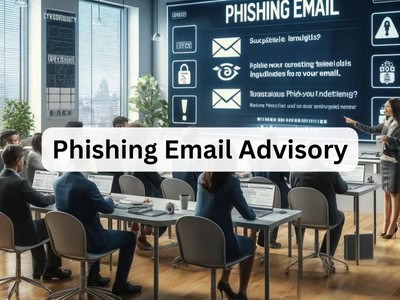This post is also available in:
简体中文 (Chinese (Simplified))
Phishing Email Advisory – A Guide to Staying Safe Online
Avoid Becoming a Victim of Email Phishing and Protect Yourself From Identity Theft

Understanding Phishing
Identity thieves can be unscrupulous. Awareness is the best defence we have against the actions of these fraudsters. A decent spot to begin is by understanding “phishing scams”.
The term “phishing” refers to the technique used to obtain personal and sensitive information. This could include anything from your PIN number, credit card details, account details, usernames, passwords and more. Once these fraudsters get their hands on this sensitive information, they have free reign to perform all sorts of illegal transactions at your expense.
How Do I Know I’m a Victim of Phishing Scams?
At 3E Accounting, we do our best to warn our clients to stay vigilant. This Phishing Email Advisory, for example, is one such measure of educating our clients on the tell-tale indicators you’ve fallen victim to online scams.
Some of the signs of email phishing include:
- Fake emails claiming to be from the bank, service provider or some sort of credit card company.
- Emails disguised as “official” emails that ask you to “confirm” certain sensitive or personal information for vague reasons.
- Emails that contain links to duplicate websites that closely resemble the original. Sometimes, even experts have difficulty distinguishing real websites from the fake ones.
- Emails that contain Trojans, viruses or worms that detect every keystroke, making it easy to capture sensitive information.
By embedding your details on these fake websites, you’ve become the next victim of these email phishing scams.
Protect Yourself and Stay Safe
As per our Phishing Email Advisory, here are some ways to stay safe online:
- Key it the full address of any website in your browser. Avoid clicking on links embedded in these suspicious emails.
- Look for the “padlock” icon on the browser bar, before the website address is displayed. This icon identifies that the website has an official domain name and a corresponding digital certificate.
- Avoid responding to any emails that request confirmation of personal information. Sensitive information should never be transmitted online.
- Avoid entering any sensitive or personal information in pop-up windows.



